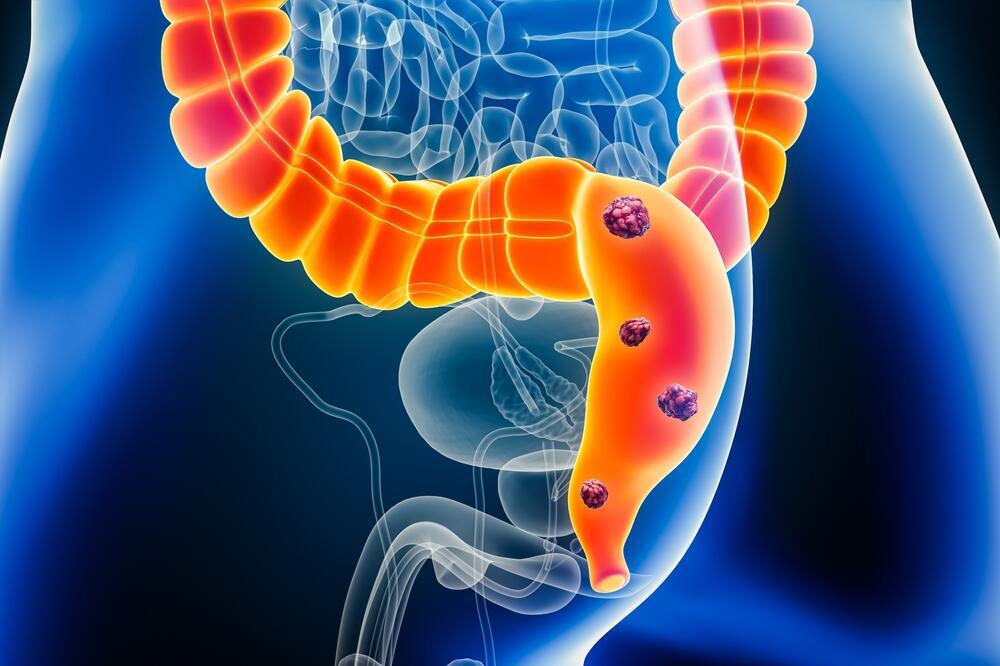Getting your Trinity Audio player ready...
Preliminary findings from a study at the Davidoff Center at Rabin Medical Center suggest a novel treatment may eradicate rectal cancer in 65% of patients and reduce the need for surgery.
Led by Prof. Baruch Brenner, head of the Oncology Department and the Gastrointestinal Oncology Unit, the study presents a potential new direction in cancer treatment. "These results suggest a promising new direction," said Prof. Brenner.
Rectal cancer, accounting for about 25% of colorectal cancer cases, is often diagnosed at an advanced stage, requiring complex treatment. Traditional treatment for localized rectal cancer typically involves surgery, which can significantly impact a patient's quality of life, sometimes necessitating the removal of the anus. The new approach combines immunotherapy with chemoradiotherapy, potentially eliminating the need for surgery in many cases.
Conducted with a team of specialists at Rabin Medical Center, the study found that preoperative immunotherapy and chemoradiotherapy substantially improve the likelihood of curing rectal cancer and reducing surgical necessity.
Preliminary results involving 20 out of 29 patients were presented at the European Society for Medical Oncology (ESMO) Gastrointestinal Tumors Conference in Munich. The combined treatment eradicated tumors in 65% of patients and prevented surgery for most.
With these promising results, a multi-center study is planned in Israel and Germany, led by Prof. Brenner and his team. "While our data comes from a relatively small patient cohort, it indicates the potential of this new therapeutic approach to improve outcomes and significantly increase the likelihood of disease eradication and surgery avoidance," Prof. Brenner noted.
He also highlighted preliminary indicators that certain patients might benefit most from immunotherapy. "Over the past year, evidence supporting our findings has accumulated, showing that incorporating immunotherapy into preoperative treatment can enhance the chances of tumor eradication," he added.
 Prof. Baruch Brenner Photo: Binyamin Adam
Prof. Baruch Brenner Photo: Binyamin AdamAccording to the Israel Cancer Association, approximately 750 people in Israel were diagnosed with rectal cancer in 2023, with about half either diagnosed with or developing metastatic disease in the liver, lungs or abdomen. The data reveals that rectal cancer is more common among older individuals, with over 80% of diagnoses occurring in those over age 60.
Typically, colorectal cancer patients do not have a family history of the disease, and only about 5% of cases are due to a defective hereditary gene. However, individuals with one or more close relatives diagnosed with colorectal cancer under age 50, or with multiple cases in the family, are advised to seek genetic counseling and undergo medical monitoring as recommended by their doctor.
Cancer experts warn that symptoms of colorectal cancer include blood in the stool or bloody discharge; changes in bowel habits, such as unexplained diarrhea or constipation lasting more than two to three weeks; unexplained weight loss; lower abdominal or stomach pain; a feeling of incomplete evacuation after defecation; fatigue due to anemia caused by bleeding from the tumor; shortness of breath; nausea; vomiting; constipation; and a feeling of fullness.
They emphasize that "any of these symptoms could result from non-cancerous conditions, but if they persist or worsen, it is important to see a doctor for an examination." Colorectal cancer typically appears in people over 50, but symptoms in younger individuals are sometimes misattributed to other bowel issues.
Israel Cancer Association recommendations to reduce colorectal cancer risk:
- Maintain a healthy and balanced diet and keep a healthy body weight: Excess weight and obesity increase the risk of colorectal cancer. Increase your intake of vegetables, fruits, whole grains, and legumes. Avoid processed meat and limit the consumption of red meat and processed, smoked, fried, salty, and preserved foods. Studies have shown a strong connection between vegetable consumption and a reduced risk of cancer.
- Incorporate physical activity throughout the day and limit sitting time: Engage in moderate physical activity such as walking, swimming, cycling, or any other aerobic activity for at least half an hour daily. Try to integrate physical activity into your workday, as a means of transportation, through household chores, or during leisure time. Increased physical activity has been scientifically proven to correlate with a reduced risk of mortality from colorectal cancer.
- Limit alcohol and sugary drink consumption, and try to avoid them altogether: Minimize the intake of alcoholic beverages as part of a healthy lifestyle that reduces the risk of colorectal cancer and other types of cancer. Similarly, avoid sugary drinks that increase the risk of colorectal cancer. A large study involving over 100,000 people recently determined that those who consumed one or more sugary drinks daily had a 38% higher risk of developing colorectal cancer and double the risk of dying from the disease.
- Avoid smoking cigarettes and all tobacco products, including e-cigarettes, heated tobacco products and hookahs: There is no safe level of smoking, and even smoking one cigarette a day or only during social events can lead to illness and premature death. Numerous studies have indicated a connection between smoking and colorectal cancer.


